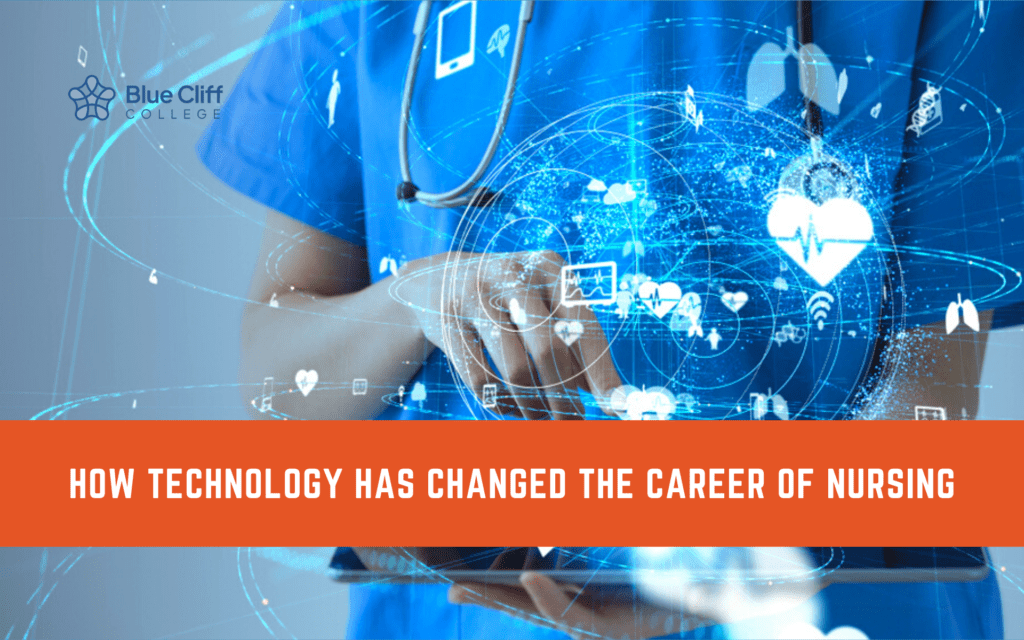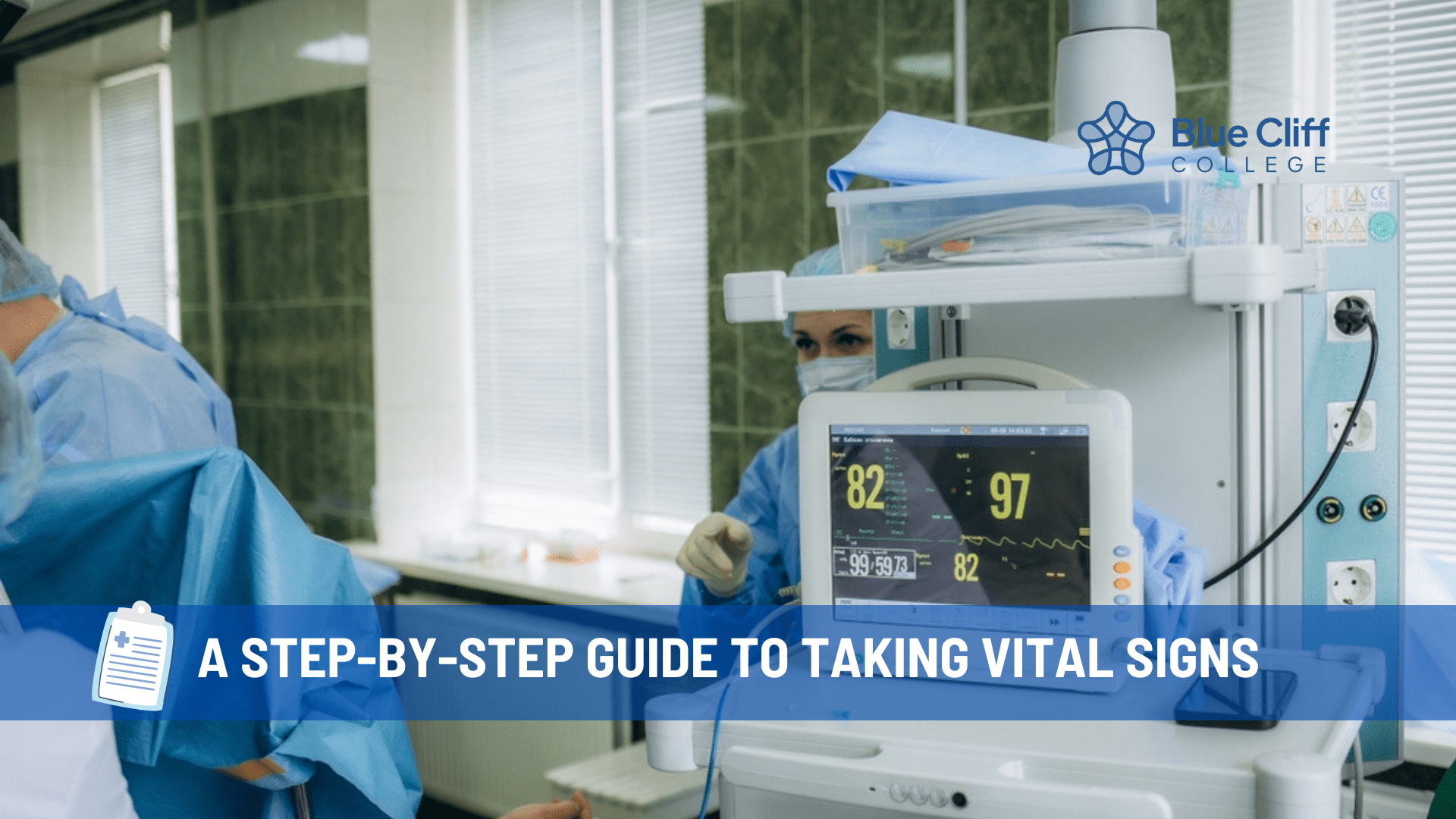Licensed practical nurses are in high demand, making it an excellent career choice to get into. You can enter the workforce quickly when taking an LPN training program to learn everything you need to know to succeed in the position.
It’s an exciting time to join the nursing field, as new technologies are being constantly introduced to improve and revolutionize the healthcare industry.
Let’s discuss the benefits of applying new technologies to nursing, some examples of technology that’s used, and what the future of nursing looks like.
Table of Contents
The Benefits of Technology in Nursing
- Boosted Efficiency
Many of the most tedious nursing tasks can now be performed automatically with specialized equipment. This automation can not only give nurses more time for other tasks, but it also reduces human error and accidental oversights. - Quicker Communication
Thanks to online resources and mobile technology, nurses can more easily coordinate with their team members, update patient charts, and communicate up-to-the-minute- information to the doctors. - Improved Access to Patient Records
Gone are the days when nurses had to search for and keep up with paper medical charts, as well as try to decipher handwriting from multiple people. With electronic medical records, information can be accessed more easily and updated more quickly. - Burnout Prevention
With technology reducing some of the most tedious and time-consuming aspects of the job, there’s less stress on the nurses. This is particularly vital during a time of staffing shortages and increased patient loads.
Nursing Technologies That Transform Patient Care
Automated IV Pumps
IV pumps are essential in patient care and offer a delivery system for patient nutrition and medication. However, IV placement and maintenance can be extremely time-consuming. Automatic pumps allow nurses to digitally program drip rates, medication dosage, and delivery intervals. It’s more efficient and reduces the risk of human error.
Smart Beds
Smart beds simplify the health monitoring process by using integrated sensors to automatically track the patient’s vital signs, like blood oxygen, heart rate, temperature, and weight.
Predictive Analytics
AI can optimize processes in hospitals and eliminate alarm fatigue by using an algorithm to help assess a patient’s risk for certain emergency conditions. This cuts down on the false alarms that hospital staff receive and allows nurses to focus on patients who really need assistance.
Predictive analytics can also be used to choose the best treatment plan for the patient by using data from past patients and analyzing data quickly.
Clinical Mobility
Clinical mobility devices, like mobile computers, tablets, and smartphones, allow nurses and other healthcare professionals to move around the facility more freely.
The benefits of these devices include:
- Better informed clinicians
- More efficient workflows
- Higher-quality patient care
How to Become a Licensed Practical Nurse (LPN)?
Mobile Robotic Systems
Using AI can help improve patient safety, enable predictive care and distant healthcare delivery, reduce costs, and achieve better results in management.
For example, Moxi robots assist nurses by performing time-consuming tasks, like collecting medicine from a pharmacy or delivering lab samples.
Artificial Intelligence in Clinical Decision Support
AI helps nurses sort high volumes of patient data and understand new information to help patients make clinical decisions and take action concerning a diagnosis or treatment plan.
Some advantages of this technology include:
- Quickly analyzing large volumes of data
- Identifying and advocating to improve care gaps
- Accurately identifying at-risk patients
- Identification of disease presence in asymptomatic patients
- Fall risk prediction and precaution implementation
- Guided decision trees to prevent infection from catheterization
Electronic Records
Electronic health records combine a patient’s facility-specific medical records with more comprehensive health information that can help medical providers offer the best care possible. Because they’re stored digitally, these records don’t require a huge amount of physical space and are more easily accessible.
Motor Sensor Alarms and Pressure Sensors
In-room sensors are designed primarily to monitor the safety of the elderly. The motion detection sensor triggers an alert when it spots body movement, like when a patient falls or is wandering. They’re built-in with nurse call buttons to signal the nurse that they should address the situation immediately.
Wearable Technology
Wearable technology devices allow nurses to engage with patients even when they’re not physically in the medical clinic. They vastly improve tracking a patient’s health who has acute conditions or chronic health issues.
They’re typically used to monitor vitals, like:
- Heart rate
- Blood oxygen
- Blood pressure
- ECG
Program Duration
How Long Is The Licensed Practical Nurse Program?
15 months
The normal completion time for the 32 Credit Hour Licensed Practical Nurse Diploma program is 15 months.
Enroll NowRemote Monitoring
Remote patient monitoring allows for the capture and analysis of patients’ medical conditions without visits.
These tools include:
- Portable ECG monitors
- Digital stethoscopes
- Blood pressure cuffs
- Pulse oximeters
- Bluetooth thermometers
- Wearables for activity and biometric tracking
Telehealth
Telehealth applications allow doctors and nurses to provide essential care for patients who are not able to visit the medical office in person. This is done through video conferencing so that medical professionals can meet with patients and assess their condition based on presenting symptoms and determine whether a physical office visit is required or if they can prescribe treatment based on the information in the telehealth appointment.
Challenges of Nursing Technology
- Steep Learning Curves
When new technology is implemented, nurses and the rest of the staff need to be trained on how to use it. The learning curve can be frustrating for some as it’s a huge change to the way that everyone is already comfortable doing things. - Implementation Challenges
While new technology generally introduces a positive change, the period of transition can be frustrating until the staff gets used to the new processes. - Equipment Malfunction
As with all technology, there’s always the possibility that it may malfunction. Because the role that nursing technology plays is so essential, it can cause big problems when they’re not working properly. - Overreliance on Machines
There’s a concern that if the staff becomes too reliant on technology, there may be a negative impact on personal attention to the patients. If machines are used to monitor conditions, they are spending less time with the patient and potentially paying less attention to them.
How Will Technology Change Nursing in the Future?
The nursing and healthcare professions will continue to routinely develop and apply new technologies to improve the industry.
There are many benefits to doing this, like:
- Reduced human error
- Streamlined patient care
- Greater human interaction
There will, however, also be challenges, such as:
- Increased expense to acquire new technology and train nurses to use it
- Growing patient loads
- Potential cybersecurity risks
Embracing new technology has unparalleled benefits that far outweigh the challenges. Nurses will continually need to adapt to new technology that will replace outdated systems, complete time-consuming routine tasks, and fulfill standard deliveries. While it may initially be challenging, the results are a safer, more efficient healthcare industry.
Become a Licensed Practical Nurse
If you love to help others and are open to embracing new technologies, then a career as an LPN may be for you. You will not only be able to join the workforce quickly with our licensed practical nursing program but there is also a high demand for the position. At Blue Cliff College, you will learn everything you need to start to start a career you’ll love.
Enroll now or contact us to learn more about this LPN Program and others that are offered by Blue Cliff College.





